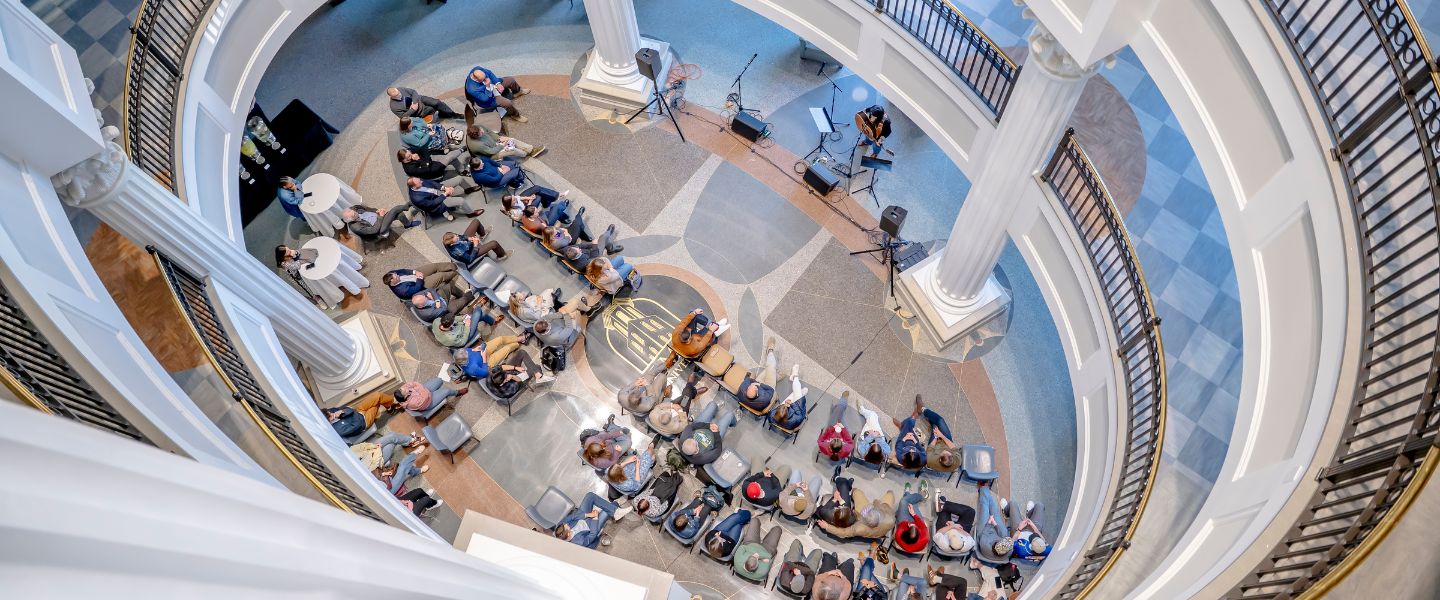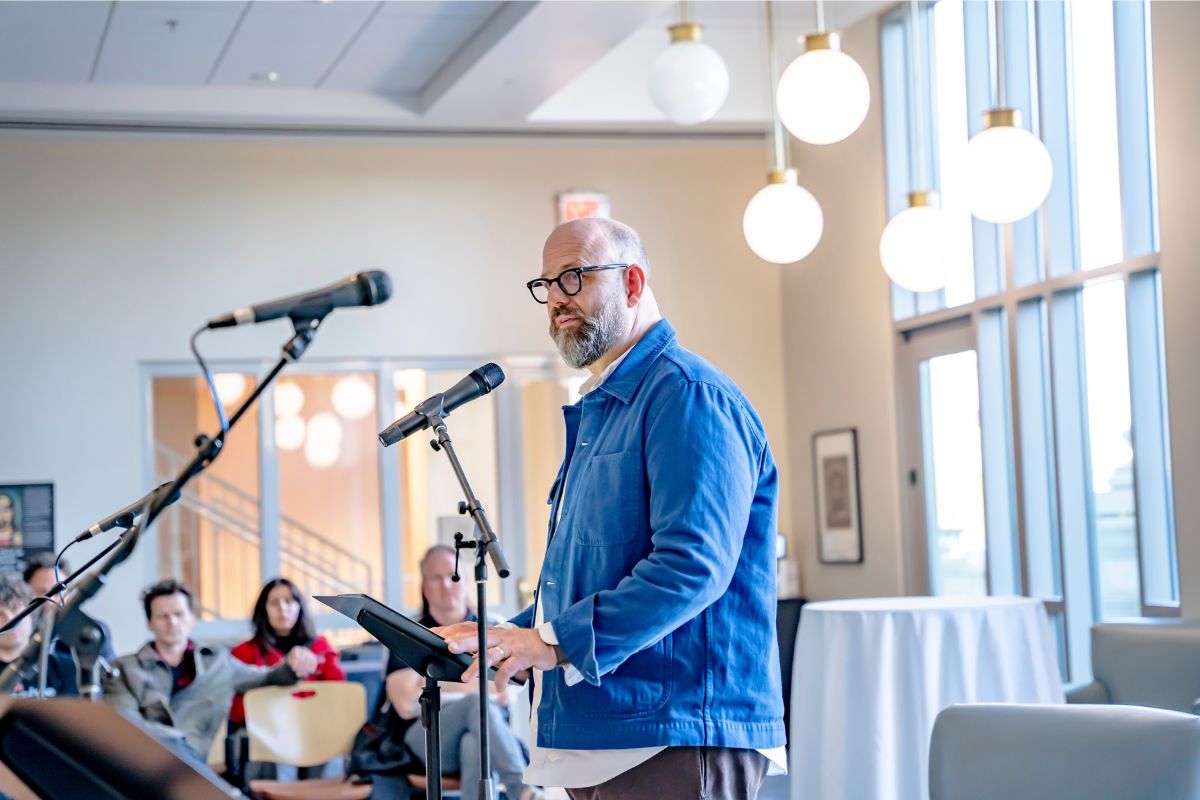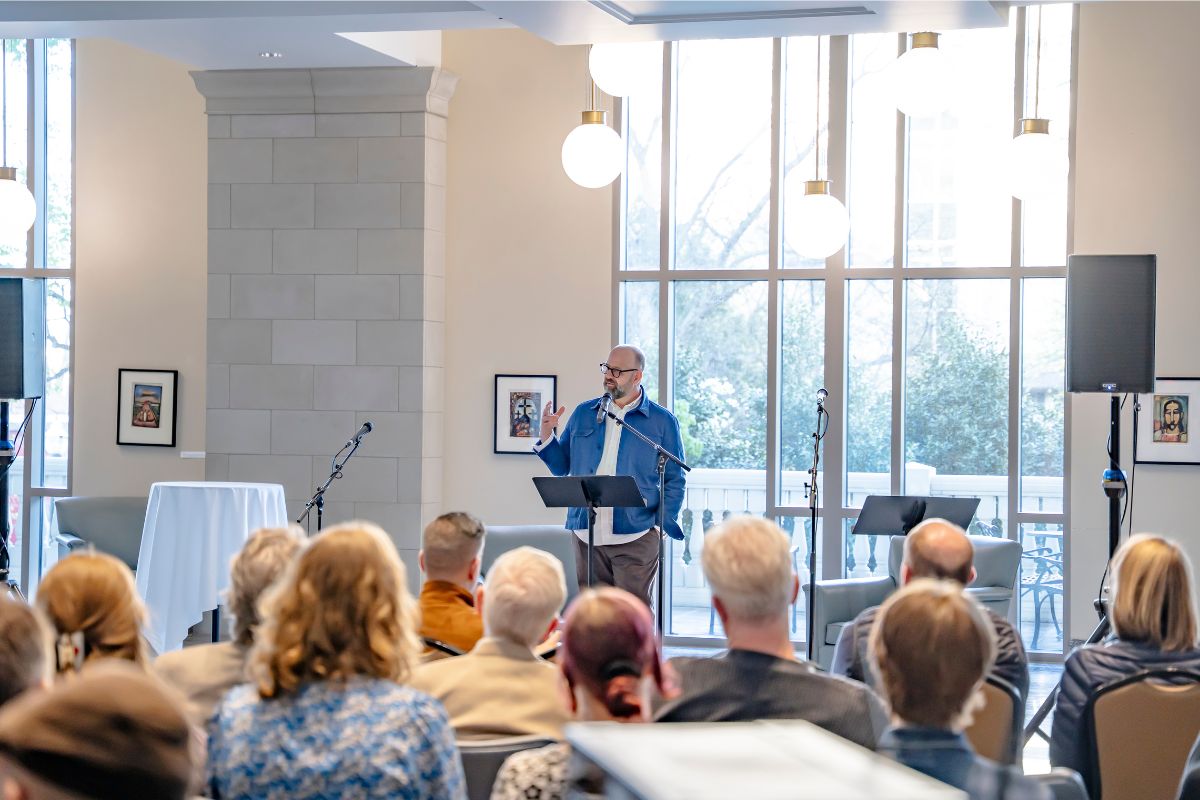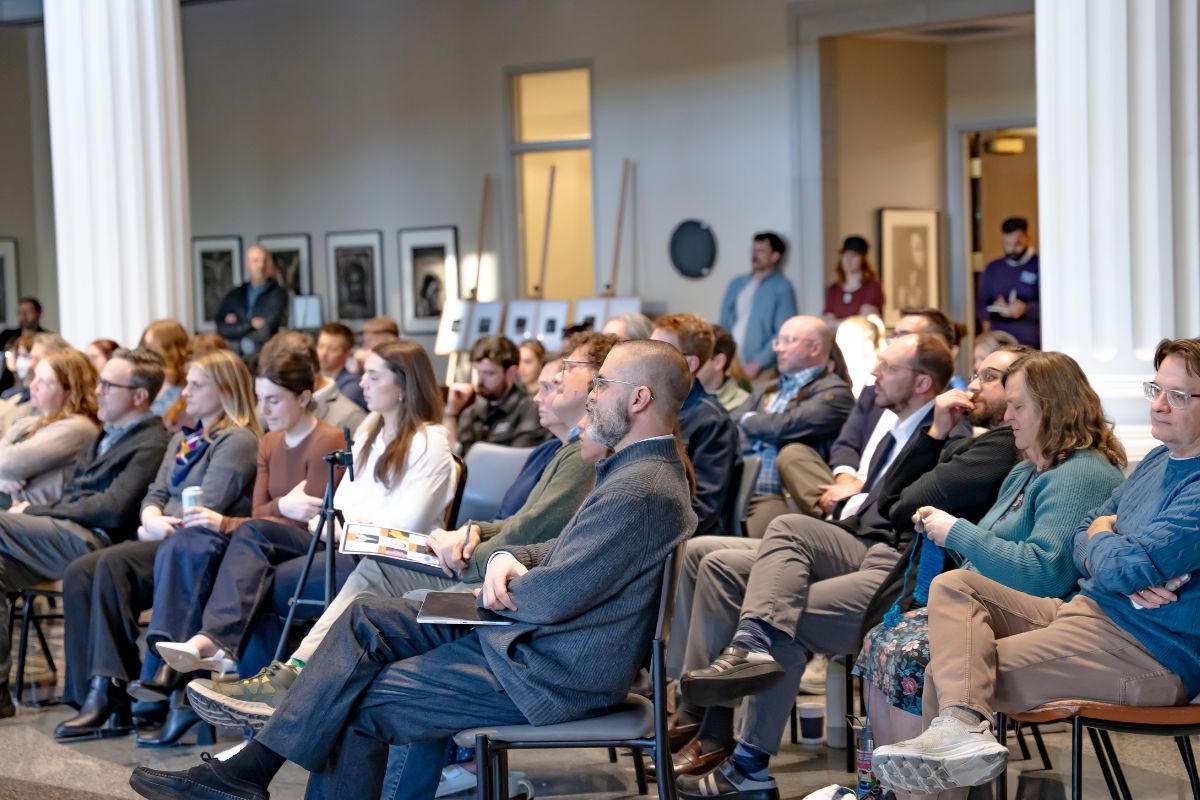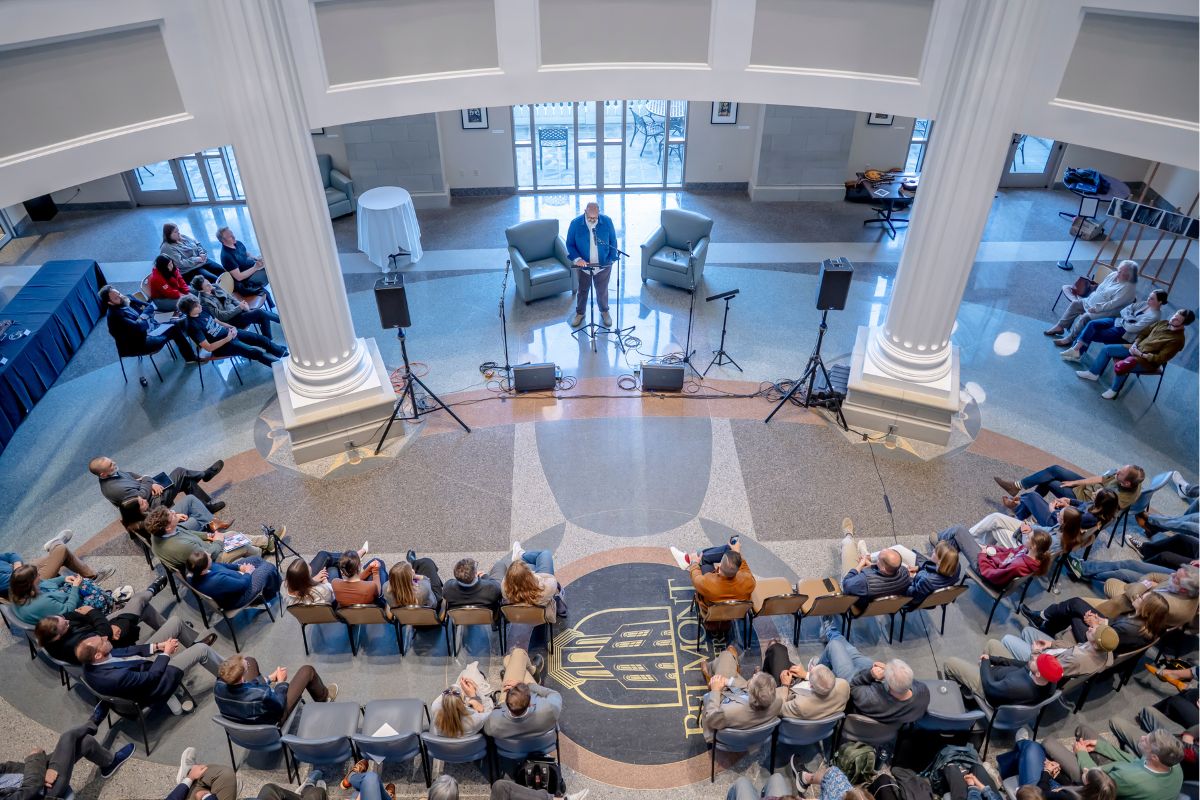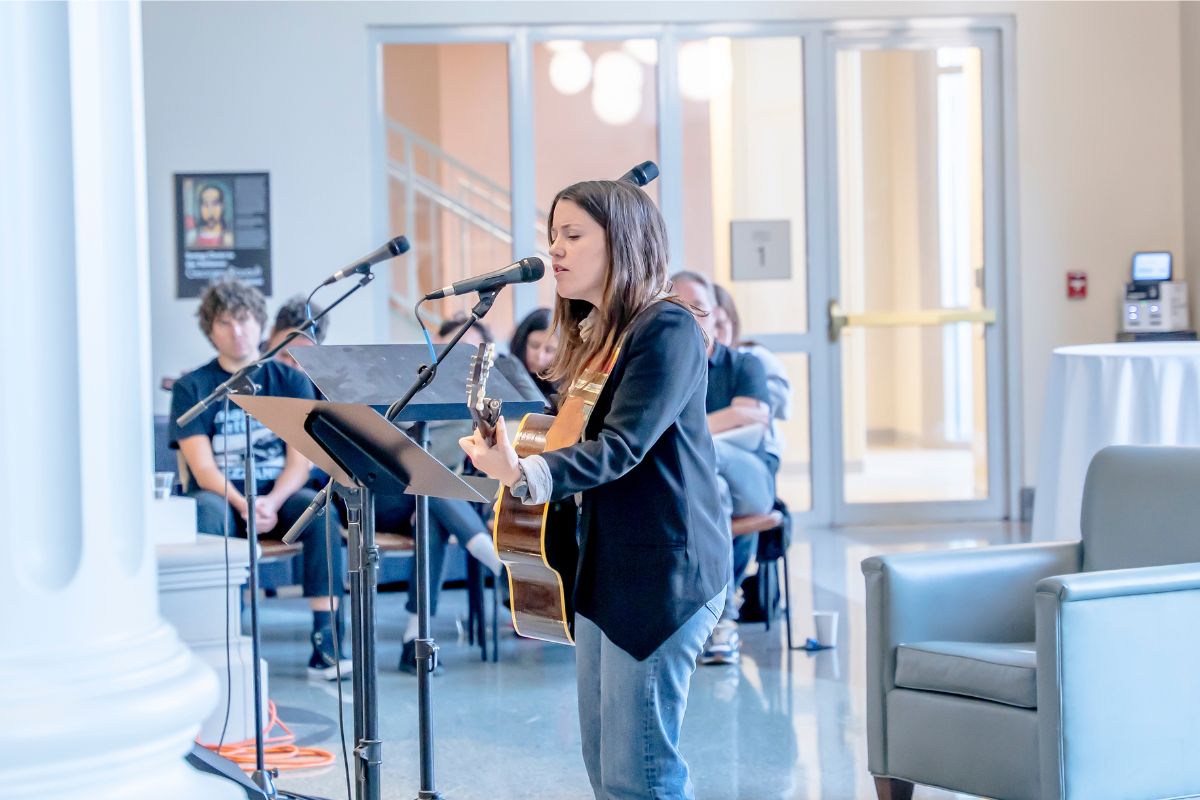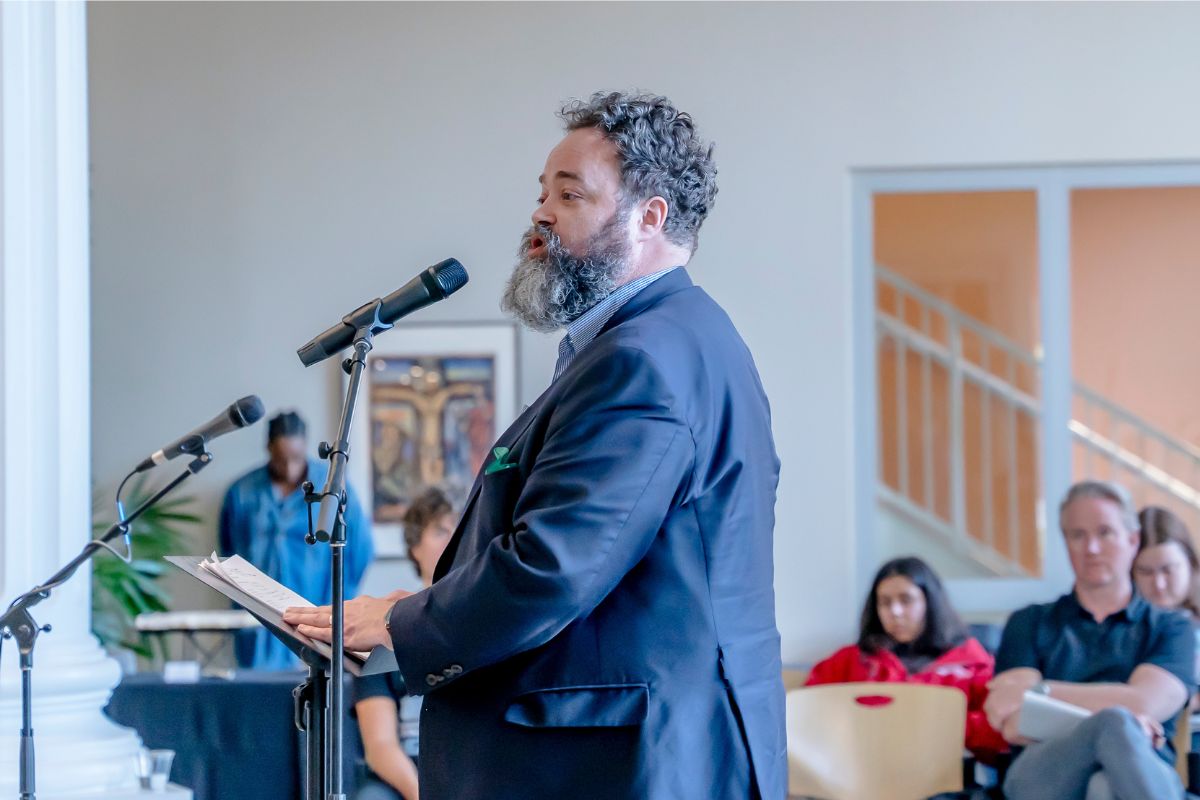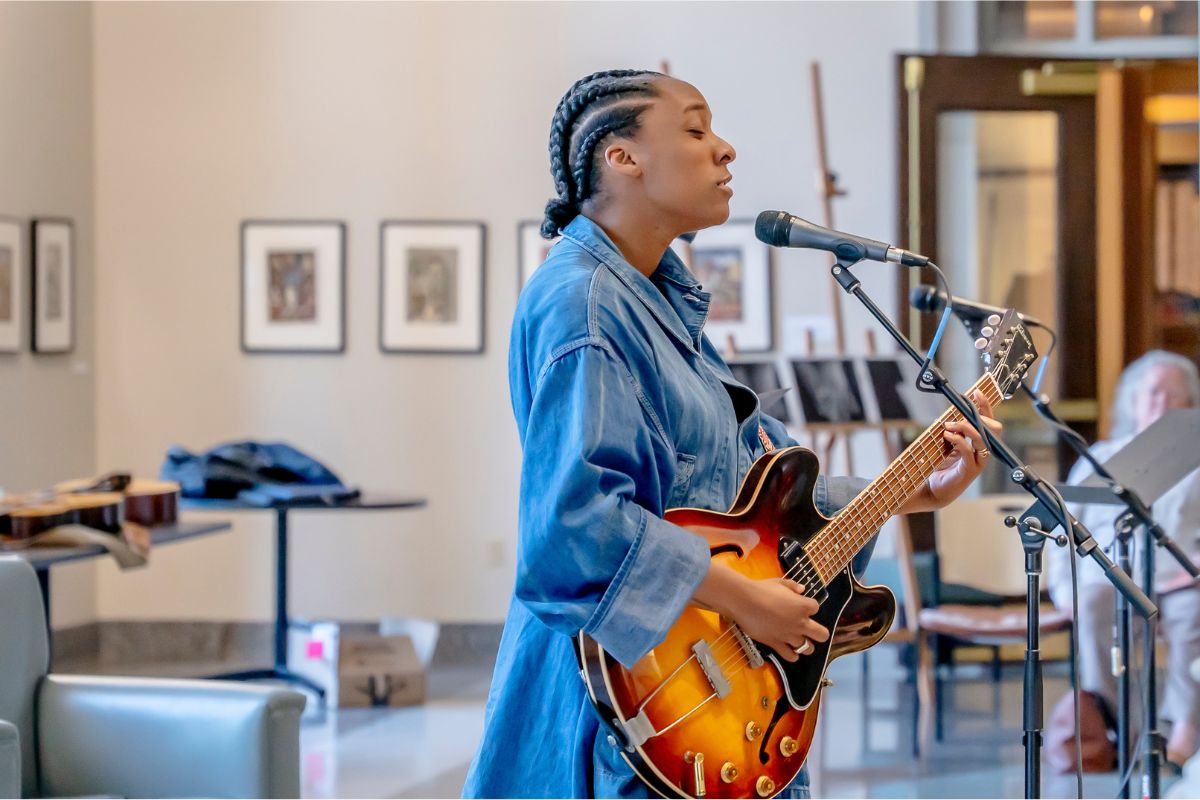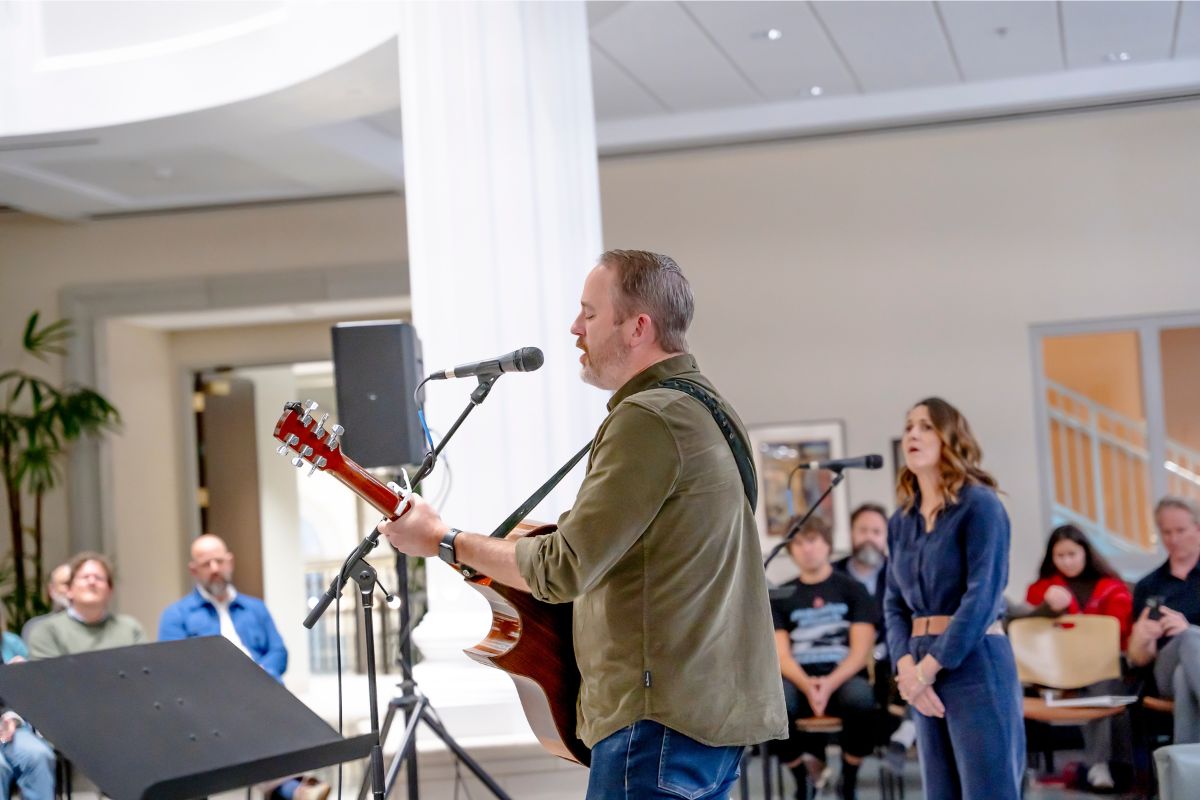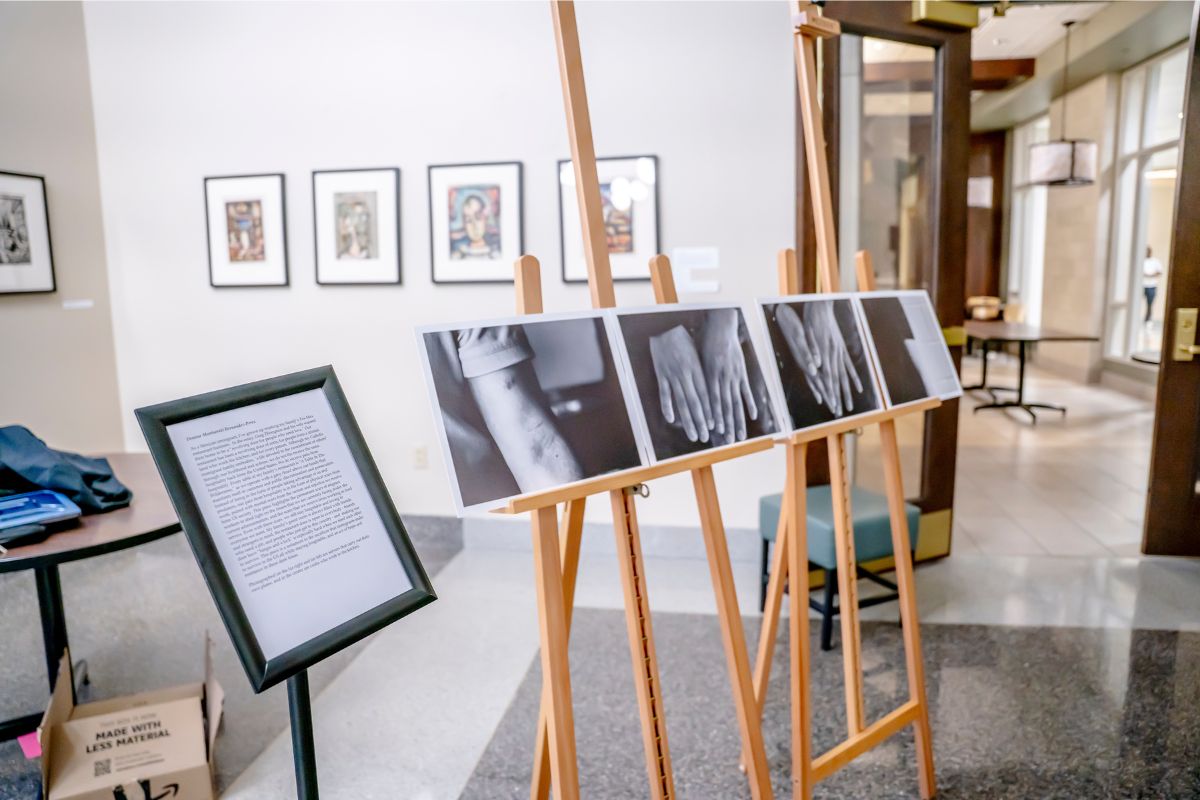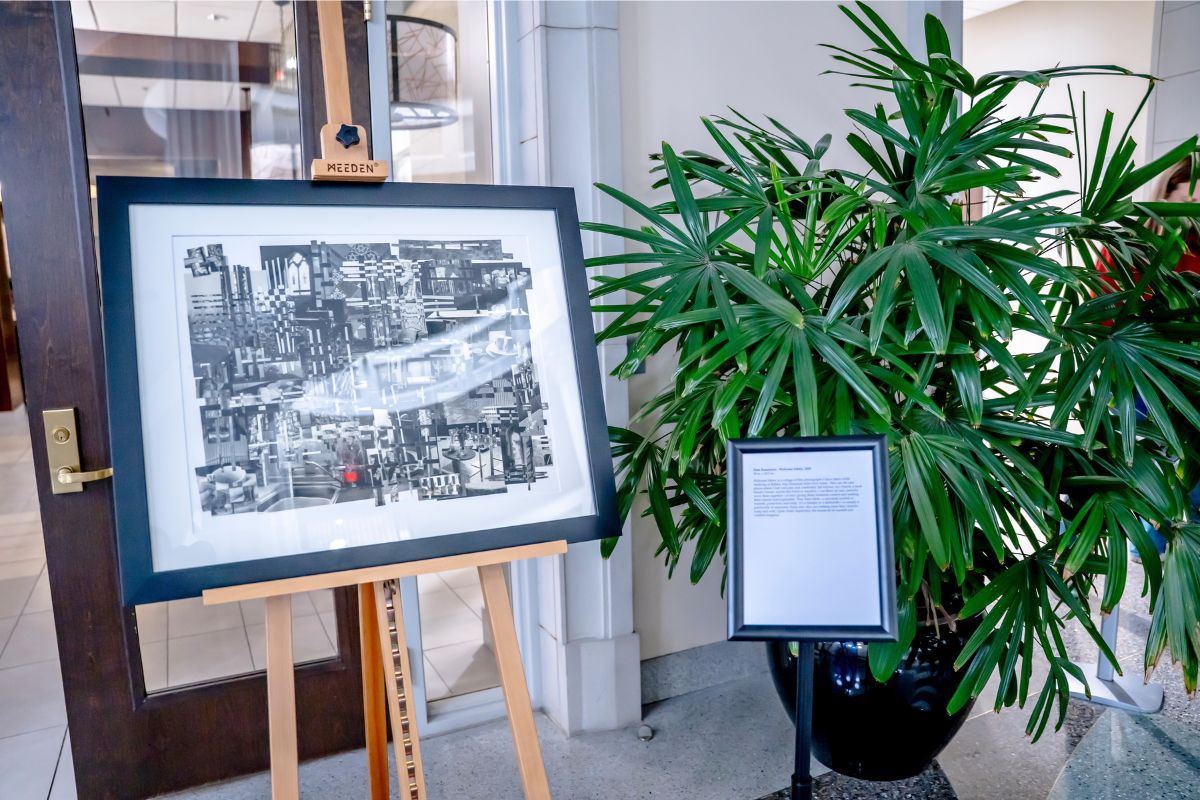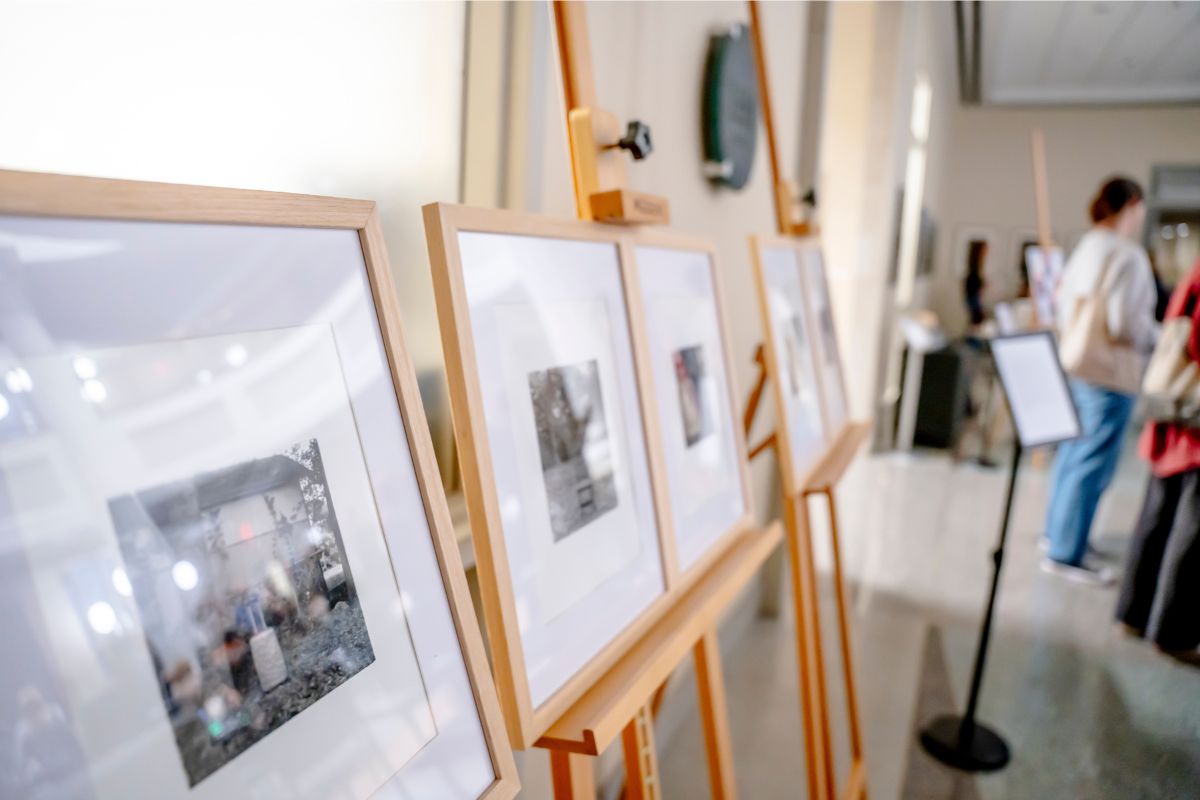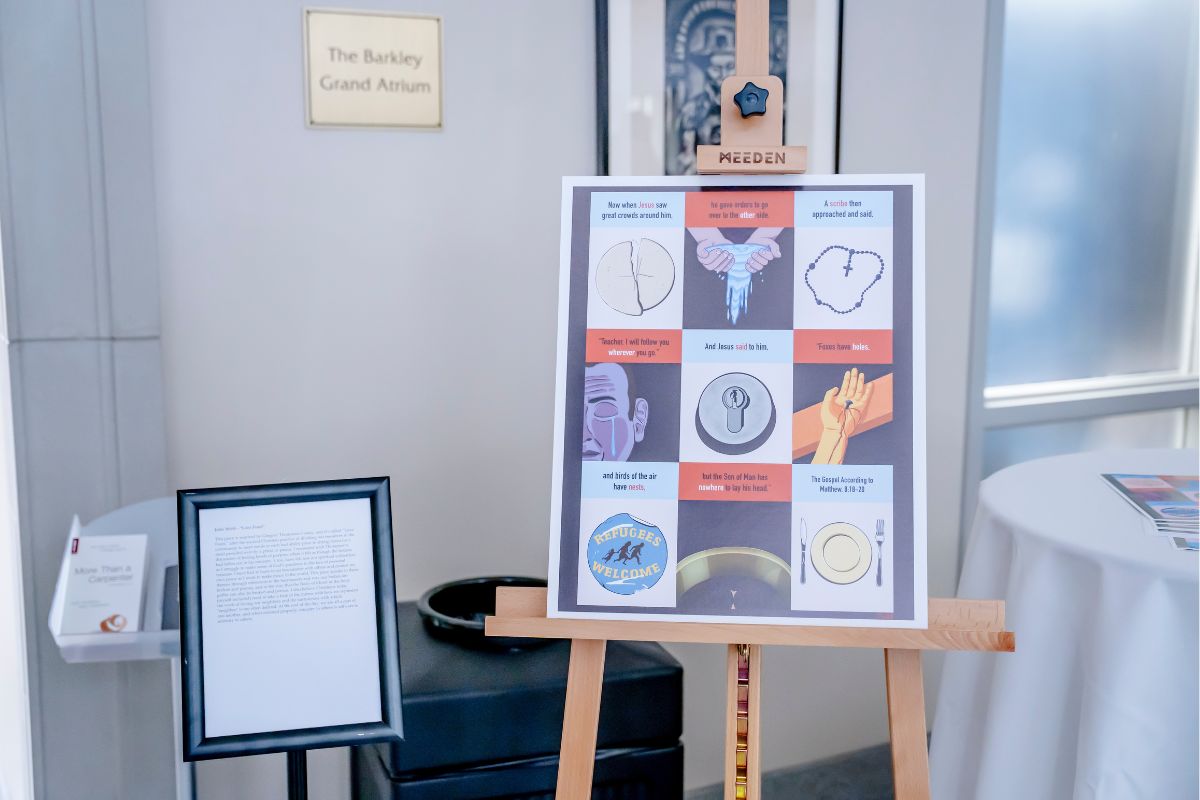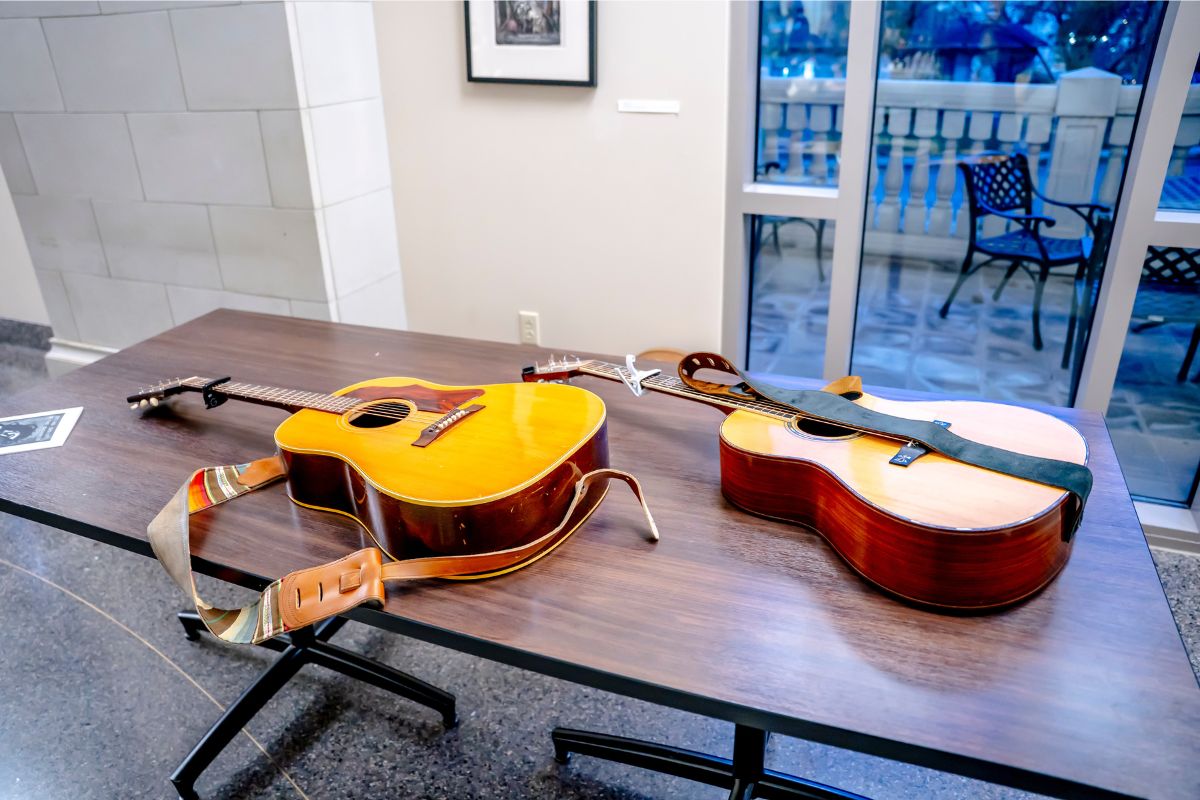Belmont hosts Dr. Greg Thompson, author of ‘Hinges and a Lock,’ to testify about the power of hospitality
The School of Theology and Christian Ministry, in collaboration with the Creative Arts Collective, hosted the inaugural installment of its Theology and The Arts Lecture Series last week — a series, that despite its name, will not consist of a single lecture.
“God and theology are not boring, so our event should not be boring,” said Dr. Adam Neder, associate dean of the College of Liberal Arts and professor of theology at the evening’s introduction. “Good theology and good art are not monological, they are dialogical. We wanted to create an event around a conversation between our speaker and those who share many of the same interests and commitments as our speaker.”
The result of this first event was a call-and-response of sorts called “A Table in the Wilderness” in which theologian, activist, musician, baker, line chef and entrepreneur Dr. Greg Thompson shared an article he wrote for Comment magazine detailing the beauties and dangers of hospitality, “Hinges and a Lock: Hospitality in a World of Predators.”
Afterwards, artistic responses to Thompson’s article including original songs, artwork and poems were performed and presented — an interactive dialogue discussing the role hospitality plays in modern day Christianity and general society.
‘Hinges and a Lock’ — The Message
“Hinges and a Lock” details Thompson’s move to Charlottesville, Virginia with his family to create a place of refuge for whoever would need it. They built a house with a revolving door, unlocked and open to anyone, anytime.
After years of joyfully giving everything they had to students, neighbors and families in need, the Thompsons realized they had “built a life hospitable to everyone but themselves.” This culminated with the discovery that they had unknowingly welcomed a predatory abuser into their home who had inflicted unthinkable terror upon his family.
Thompson described how they "removed that door and replaced it with another, heavy on its hinges. And we swung it shut, and we barred it with every lock within reach."
Yet ultimately, a life of hospitality beckoned and helped his family feel like themselves again — through cooking, creating and relearning what it meant to welcome others despite profound betrayal.
Central to Thompson’s message was the countercultural nature of hospitality in today’s social, political and cultural climate.
"Hospitality is the answer," he said. "Instead of hierarchy, we've got equality around the table. Instead of domination, we've got service. Instead of displacement, we've got welcome. Instead of extraction, we've got generosity."
‘Hinges and a Lock’ — Artistic Responses
Following the reading, artistic responses began with Taylor Leonhardt performing her original song titled “Feel Like Us Right Now.” The name is a direct reference to what Thompson’s wife, Courtney, said as the two washed dishes after hosting 13 people for the first time in years.
“This feels like us,” she said. “For the first time in years, this feels like us.”
Professor of Religion and the Arts Dr. Donovan McAbee presented an original poem, “Mama’s Body,” that detailed how his mother lived a life exuberating hospitality despite receiving very little through the many difficulties she endured.
Zandry Mowry composed and played a song featuring the following chorus:
“I’m happy I can breathe again,
I’m happy to be me again.
I didn’t know I could do it,
Come back from a life that felt ruined.
Oh, I’m happy to be me again.”
The final song of the evening from Jill Phillips and Andy Gullahorn prominently positioned the phrase “you’re never going to lose my love” throughout, emphasizing the persistent hope that exists even in the darkest moments.
Throughout the room, visual artwork created by Belmont students were displayed on easels to offer another dimension of dialogue with themes of trauma, healing and redemption.
Hospitality as a Deep Moral Sensibility
Thompson also sat down with Dr. David Dark, associate professor of religion and the arts, to discuss how hospitality can combat exclusion and fearmongering.
“What I love about hospitality is it’s also a philosophical antidote,” said Thompson. “We’re basically saying ‘we see that you want to take, but we want to give. You want to push people out, but we’re trying to welcome people in.’”
Additionally, the discussion focused on how fear and control inhibit genuine hospitality.
“So many coping mechanisms for navigating fear are rooted in control,” he said. “We see this in public discourse, in politics, from thought leaders within the church, everywhere. But control is such a lie. As long as you believe you will have some control, you are going to live a terrifying existence.”
If we built longer tables rather than higher walls, renounced control for the lie that it is and welcomed people into our spaces — I think that is where joy is found.
Thompson’s passion for hospitality and belief in its power to heal, unite and better the world is perfectly surmised within one sentence in “Hinges and a Lock.”
“I was there, in other words, because I wanted to bear witness to the fact that in a world in which predatory violence is so tragically real, hospitality — a life devoted to the nourishment of others — is nonetheless more real, nearer to the joyful and generous heart at the foundation of the world.”
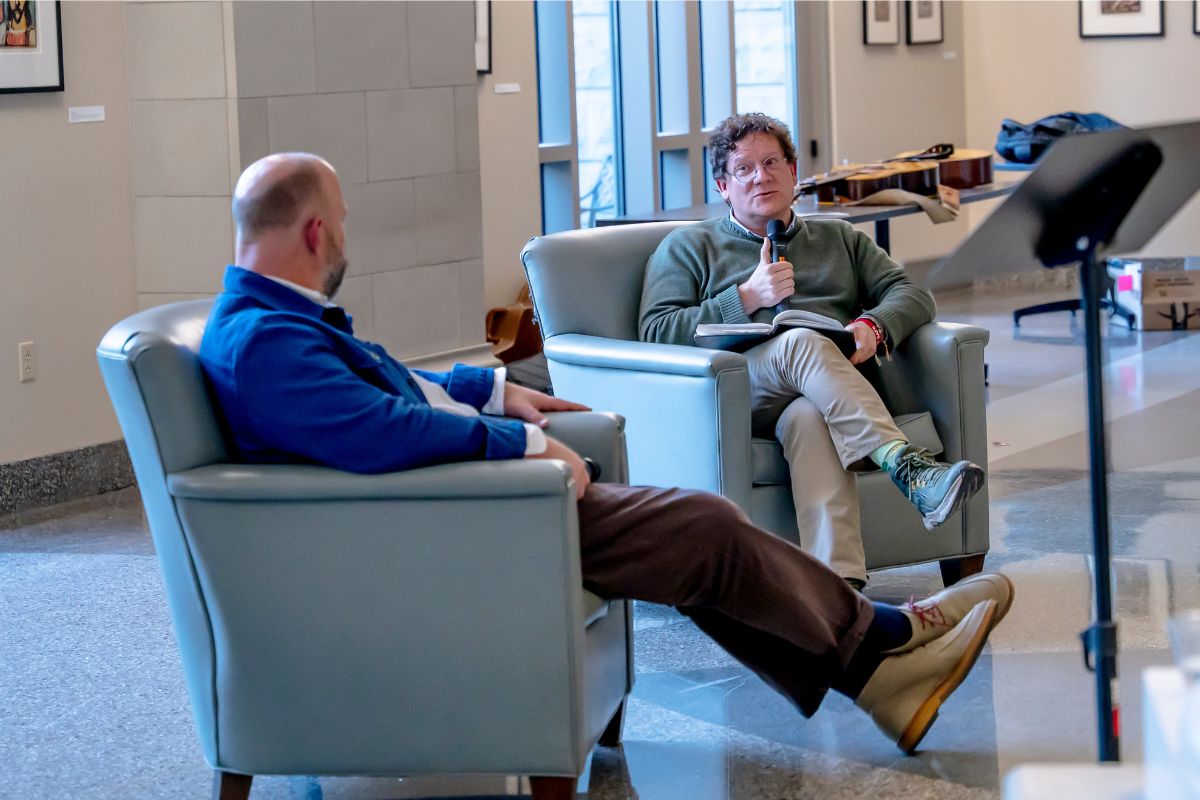
Dr. Greg Thompson and Dr. David Dark
Learn More
Learn more about Theology and Christian Ministry at Belmont.

